Jack Nolan, who heads the organic unit in the Department of Agriculture, exudes positivity about prospects for organic farming in Ireland.
He sees no problem passing the 7.5% target in the CAP strategic plan for land in organic farming nor the 10% or 450,000ha target in the climate action plan for 2030.
He refers to the 2,000 farmer applications made to the scheme that closed in December and suggested that as many as 4,000 applications could be made when the scheme opens again later this year, bringing the overall number to 8,000 farmers by January next year.
Refreshing
It is refreshing to hear a senior Department official speak so unequivocally and positively on a subject.
Farmers are used to listening to 'civil service speak', where many words are used, but there is little clarity and several qualifications added to any views shared.
In fairness, given the financial commitment by the EU and Irish Government with a €292m budget for the next five years to support conversion, organic farming will be an attractive option.
This is enhanced further by the surge in input costs, particularly fertiliser and to a lesser extent pesticides used in conventional farming.
Neither of these will be required by farmers converting to organic, so as well as generous grant funding, production costs will also be avoided.
Markets are the missing piece
So far, so good. However, the final piece of the jigsaw for success is more difficult to find.
Any sustainable business has to have a viable market. Support funding cannot maintain a business indefinitely, though it is essential in the establishment stage and is again required at times of market difficulty, as illustrated in the past by EU intervention buying of product to support the market at times of distress.
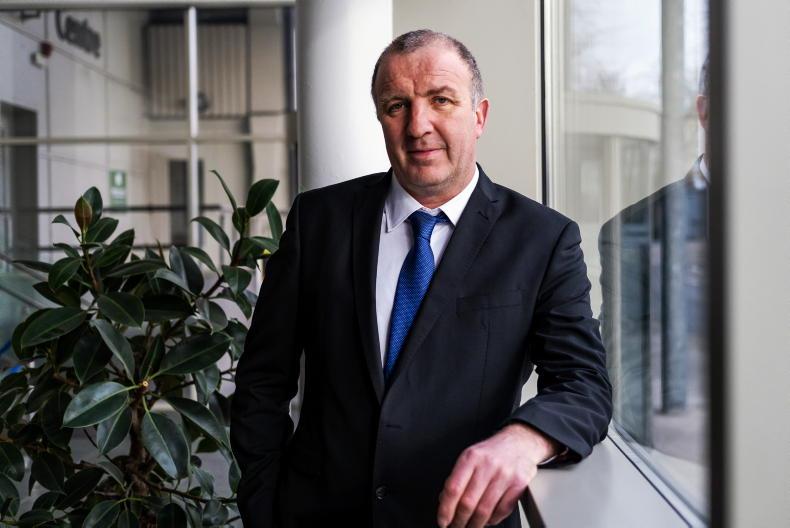
Head of the organic unit in the Department of Agriculture, Food and the Marine Jack Nolan. \ Philip Doyle
This is where it gets more complicated. Jack Nolan is confident that there will be a market as the product becomes more widely available in two years’ time.
This echoes comments made to the Irish Farmers Journal by Bord Bia late last year when a similar question was posed.
Reference is also made to Bord Bia having an organic manager appointed as evidence that steps are being taken to build the market for when the product becomes available.
Blending positivity with caution
Confidence and positivity are to be welcomed, but there needs to be an element of caution as well.
A Bord Bia organic manager does not guarantee a market, no more than the full Bord Bia team can shield farmers from the consequences of market falls caused by so many of the factors that are outside their control.
It will be the same with organic - there is general positive sentiment towards organic farming and produce across Europe and developed economies globally.
Organic is also a luxury product and is equally vulnerable to the economic environment of the day
Produce commands a premium, but this is because it is very much a low-volume high-value niche category. The challenge will be to retain the premium when volume supplies become available.
Much will depend on the economic conditions in two years time when volumes of Irish organic produce become available. Currently, we are seeing consumer purchases of lamb and high-value beef cuts come under pressure in the retail sector because of the cost of living crisis.
Organic is also a luxury product and is equally vulnerable to the economic environment of the day.
Faith fuels vision
However, it is easy to criticise and be dismissive. Vision needs faith - who realised before Steve Jobs that everyone in society would embrace a mobile phone that can do anything a bulky computer did a few years earlier?
We cannot be sure that the market for organic agri food will go mainstream and retain its premium in a growing market place.
However, it is getting generous support at the production end and it is not as if conventional markets for farm produce outside dairy and a lesser extent tillage are anything exciting.
There is a wider debate on organic production and need for more food to feed the world, but that is for another day.
In any case, maximising food production is neither an Irish or EU priority at this time and farmers have to adapt to the mood of the moment. Let’s wish it luck.
Read more
Organics: ‘there’s an opportunity there’
Minister Hackett wraps up market expansion 'drive' for organics
Jack Nolan, who heads the organic unit in the Department of Agriculture, exudes positivity about prospects for organic farming in Ireland.
He sees no problem passing the 7.5% target in the CAP strategic plan for land in organic farming nor the 10% or 450,000ha target in the climate action plan for 2030.
He refers to the 2,000 farmer applications made to the scheme that closed in December and suggested that as many as 4,000 applications could be made when the scheme opens again later this year, bringing the overall number to 8,000 farmers by January next year.
Refreshing
It is refreshing to hear a senior Department official speak so unequivocally and positively on a subject.
Farmers are used to listening to 'civil service speak', where many words are used, but there is little clarity and several qualifications added to any views shared.
In fairness, given the financial commitment by the EU and Irish Government with a €292m budget for the next five years to support conversion, organic farming will be an attractive option.
This is enhanced further by the surge in input costs, particularly fertiliser and to a lesser extent pesticides used in conventional farming.
Neither of these will be required by farmers converting to organic, so as well as generous grant funding, production costs will also be avoided.
Markets are the missing piece
So far, so good. However, the final piece of the jigsaw for success is more difficult to find.
Any sustainable business has to have a viable market. Support funding cannot maintain a business indefinitely, though it is essential in the establishment stage and is again required at times of market difficulty, as illustrated in the past by EU intervention buying of product to support the market at times of distress.

Head of the organic unit in the Department of Agriculture, Food and the Marine Jack Nolan. \ Philip Doyle
This is where it gets more complicated. Jack Nolan is confident that there will be a market as the product becomes more widely available in two years’ time.
This echoes comments made to the Irish Farmers Journal by Bord Bia late last year when a similar question was posed.
Reference is also made to Bord Bia having an organic manager appointed as evidence that steps are being taken to build the market for when the product becomes available.
Blending positivity with caution
Confidence and positivity are to be welcomed, but there needs to be an element of caution as well.
A Bord Bia organic manager does not guarantee a market, no more than the full Bord Bia team can shield farmers from the consequences of market falls caused by so many of the factors that are outside their control.
It will be the same with organic - there is general positive sentiment towards organic farming and produce across Europe and developed economies globally.
Organic is also a luxury product and is equally vulnerable to the economic environment of the day
Produce commands a premium, but this is because it is very much a low-volume high-value niche category. The challenge will be to retain the premium when volume supplies become available.
Much will depend on the economic conditions in two years time when volumes of Irish organic produce become available. Currently, we are seeing consumer purchases of lamb and high-value beef cuts come under pressure in the retail sector because of the cost of living crisis.
Organic is also a luxury product and is equally vulnerable to the economic environment of the day.
Faith fuels vision
However, it is easy to criticise and be dismissive. Vision needs faith - who realised before Steve Jobs that everyone in society would embrace a mobile phone that can do anything a bulky computer did a few years earlier?
We cannot be sure that the market for organic agri food will go mainstream and retain its premium in a growing market place.
However, it is getting generous support at the production end and it is not as if conventional markets for farm produce outside dairy and a lesser extent tillage are anything exciting.
There is a wider debate on organic production and need for more food to feed the world, but that is for another day.
In any case, maximising food production is neither an Irish or EU priority at this time and farmers have to adapt to the mood of the moment. Let’s wish it luck.
Read more
Organics: ‘there’s an opportunity there’
Minister Hackett wraps up market expansion 'drive' for organics





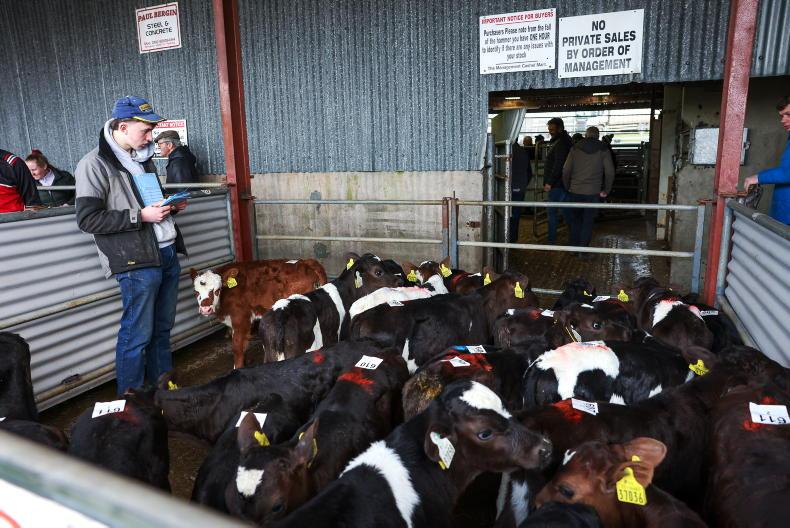
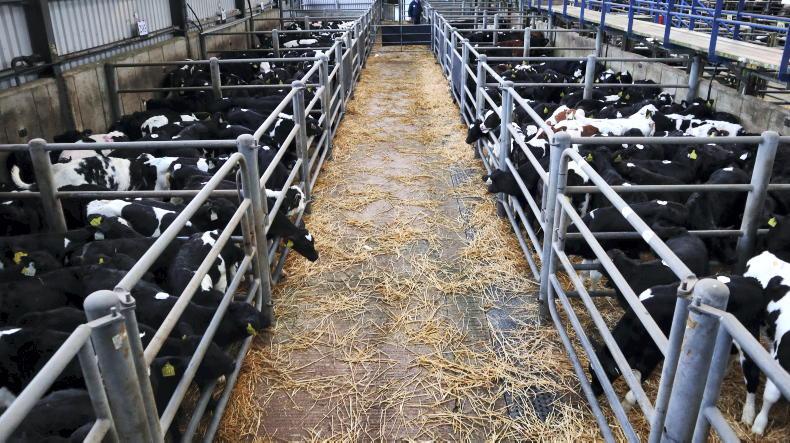
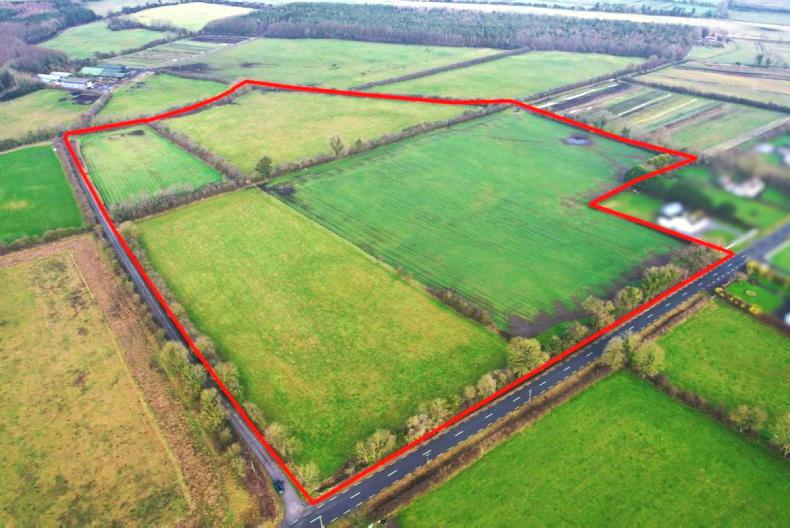
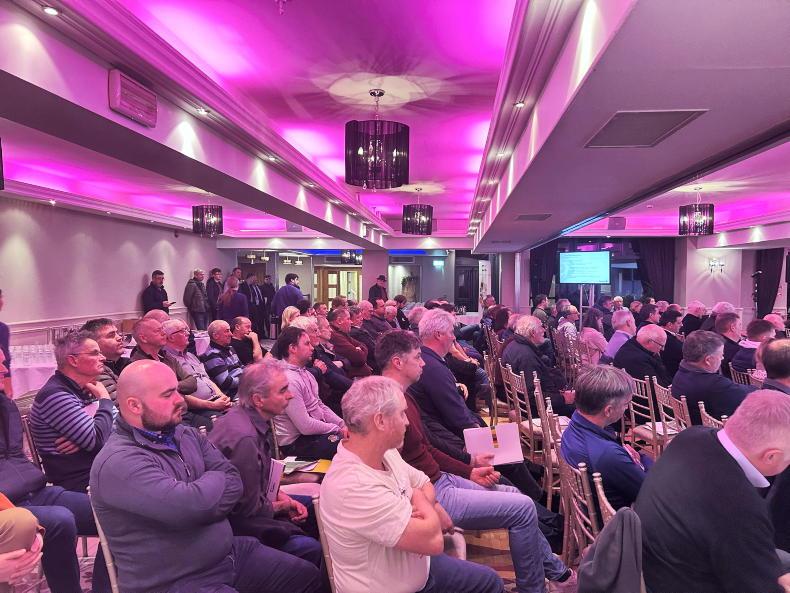
SHARING OPTIONS